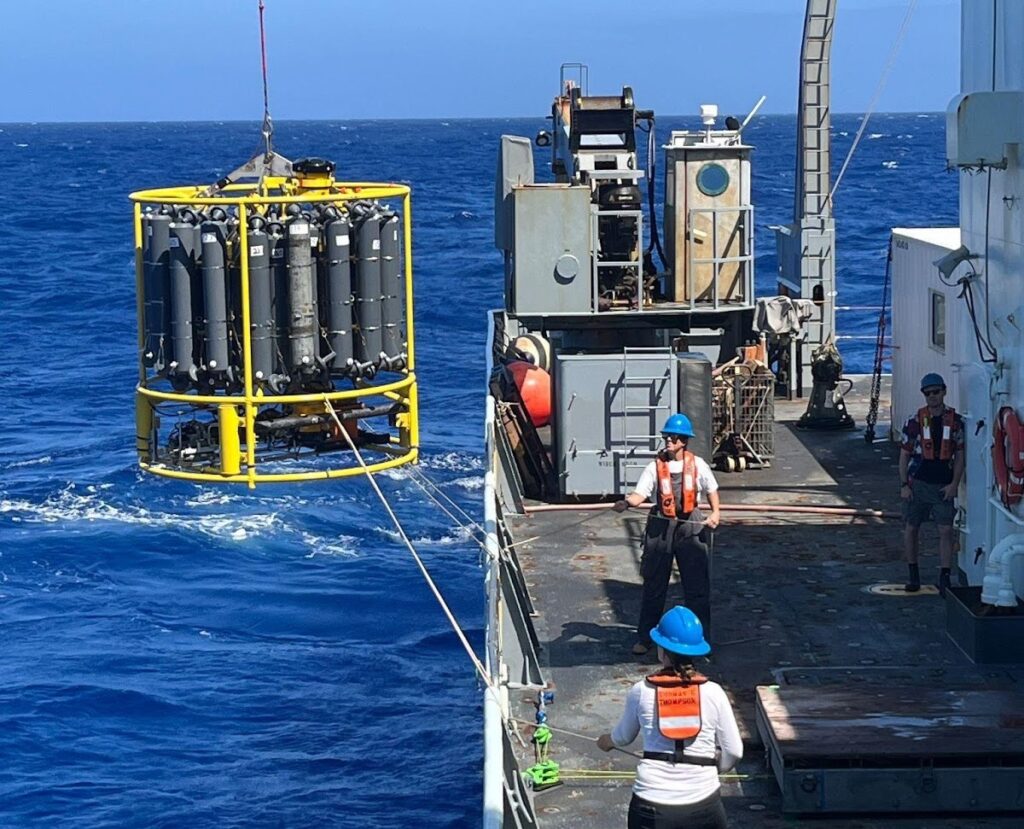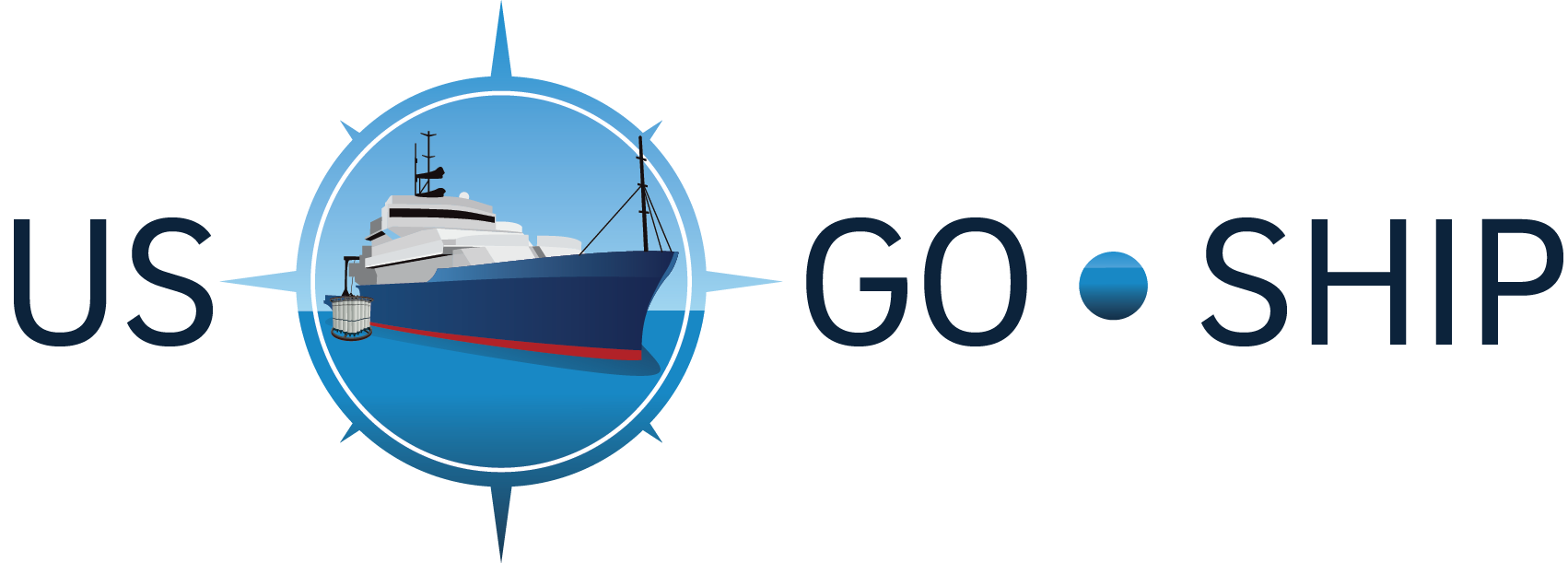The National Oceanographic Partnership Program (NOPP) announced that the 2024 recipient of the NOPP Excellence in Partnering Award is Bio-GO-SHIP! Read the full announcement here.
The Excellence in Partnering Award is given annually to a NOPP project that best exemplifies the NOPP’s objective of developing a successful network of partnerships to advance the ocean sciences. Bio-GO-SHIP is led by Dr. Adam Martiny of the University of California Irvine. The team consists of members from six institutions: Harriet Alexander of the Woods Hole Oceanographic Institution, Jason Graff of Oregon State University, Nicole Poulton of Bigelow Laboratory for Ocean Sciences, Luke Thompson of the Northern Gulf Institute and the Atlantic Oceanographic and Meteorological Laboratory, and Sophie Clayton from the National Oceanography Centre, UK.
Learn more about their project, Piloting Biological Global Ocean Ship-based Hydrographic Investigations Program (Bio-GO-SHIP) on US cruises: Towards a global analysis of large-scale changes to ocean plankton systems. You can also read articles about this exciting news from UC Irvine, Mississippi State University, and Northern Gulf Institute.

CTD cast is deployed aboard the R/V Thomas G. Thompson on GO-SHIP transect I09N, 2025. Image credit: Bigelow Laboratory.
Project highlights:
- Establishment of systematic ocean basin-wide patterns in plankton diversity, activity, and function through the collection of environmental DNA, RNA, and other parameters for the first time on three GO-SHIP transects in the Pacific, Atlantic, and Indian oceans.
- Development of novel approaches to using ocean plankton as “biosensors” of environmental change.
- Integration of in situ bio-optical and pigment measurements with satellite data, including NASA PACE, for remote sensing calibration and validation.
- Production of data management and protocol intercalibration best practices allowing for greater efficiencies as well as improved integration of data into the Global Biodiversity Information Facility (GBIF) and Ocean Biodiversity Information System (OBIS).
- Oceanographic and laboratory training of 13 students in cutting-edge scientific techniques.
Support for this NOPP project was provided by NOAA, NSF, and NASA.
